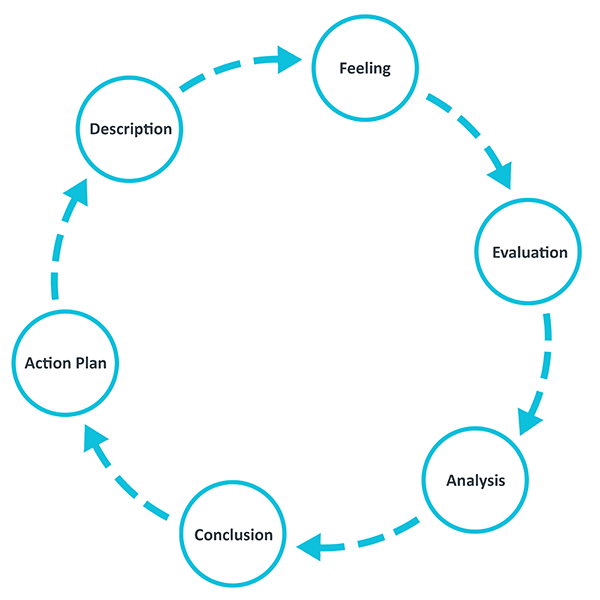First days are usually nothing short of a dream- or so I thought.
I could not suppress the mixture of both excitement and nerves for the journey ahead. I took a deep breath and straightened my new shiny ‘St. Conor’s College– Classroom Assistant’ lanyard. I stepped into the unfamiliar building and swiftly made my way down the corridor towards the staff room…only to be stopped by an abrupt tap on the shoulder with a bouldering voice echoing, “Where do you think YOU’RE going?!” I looked up at the male teacher towering over me while I feebly displayed my lanyard in a sad attempt to prove my belonging. His expression immediately softened and was quickly followed by a speel of apologies and welcomes that I could barely hear due to the heat of embarrassment rising in my body. As it turns out, the teacher had mistaken me for a meandering pupil with nothing better to do than stroll along the staff corridor. The joys of being a baby-faced and five-foot nothing (on a good day!) I was certain that my vertically challenged height would be the only bump in the road I would face and that the rest would be smooth sailing- working in a school, as an English classroom assistant is ironically never as easy as ABC! To reflect on my experience as a classroom assistant in the college, I will be utilising ‘Gibb’s Reflective Cycle’ to methodically reflect and evaluate my thoughts and feelings.

How it went…
Feeling unsettled from my unintentionally jarring welcome, the quiet confidence I had tried to instil in myself was suddenly shaken. I had worked as a classroom assistant for an entire year before and believed I knew the ins and outs of what it entailed. I knew how to manage behaviour, how to gain positive relationships with staff and students, how to photocopy, how to assist in lesson planning, how to design gorgeous display boards- everything! The only difference was my old school of employment was my former school I had attended. It was also in my hometown, so I knew most of both staff and students there. St Conor’s is also a rural town school where everyone knows everyone. However, it was not MY school or MY town or My people- I felt like the odd one out. I found it difficult to integrate myself with people I had no idea about. This started in the staff room, where everyone had their own cliques and their own conversations. I found myself cowered into a corner, listening to the various conversations, waiting for a note for me to chime in.
I remember as a young student, it was the most thrilling experience to see a new, fresh faced member of staff. My friends and I wanted to find out everything about them. We had no shame asking as many questions as we could come up with. I suddenly found myself under the microscope. “Where do you come from?” “Who do you play for?” “Do you hate any of the teachers here?” “What car do you drive?” “Do you have a boyfriend?” “Do you know my cousin who went to your school? What do you think of her?” To any former student teachers reading this, as a victim of the relentless grilling from curious teens, I formerly apologise for being one of THOSE students.
I also found getting from class to class difficult. In my old classroom assistant job, I knew the classrooms as “Mr McCullagh’s old Science room”, or “Miss Molloy’s Home Economics Room”. I was now faced with a bombarding set of classroom names, such as “C24” and “J45”. I felt I was being spoken to in an entirely different language. While figuring my way around the labyrinth of coded classrooms, I was told to “Just take the next left, then head down the closest stairs and you’ll see where to go at the end of the corridor.” In my fluster, I got completely lost in the maze and was surrounded by a stream of unfamiliar faces. Why did I not go back to where I came from?

How I felt…
I felt anxious and couldn’t shake off the feeling that I was completely out of place. Everyone at the college seemed to know each other and while it was tempting to build a rapport and answer some of the questions from the curious teens, I knew it was unprofessional and unnecessary information for them to know. The fear of not performing my role as well as I had before plagued me, and I felt really under pressure. I began to question my ability. I believe these feelings hindered my confidence and my ability to take control of the classroom as much as I would have liked to. It even made me question my future, is secondary teaching really the path I want to go down? Not having my familiar support system of old teachers, friends, family members, friends OF family members and the community I was so used to made me feel like a tiny fish in a big pond. All of this happened before lunchtime, so whilst one might suggest they are “saved” by the bell, I felt doomed- I had to face the dreaded staffroom again.
Importance of reflecting
Reflecting on that day, I realised the quiet confidence I had that this would be a breeze due to my previous experience was a bit misguided. Just like no two towns are the same, surely two schools can’t be either. I recognise the importance of acknowledging the emotions I feel and the impact they have on my professional growth. Feeling out of my depth is a natural response to new and challenging environments, but I need to remember the reality of the situation- I had to leave the comfortable bubble in my hometown someday and now was as good of a time as any.
“Learning without reflection is a waste, reflection without learning is dangerous.”
Confucius- The Analects
As I reflected on my experience on my first day, I began to seek advice from ‘Preparing Teachers for a Changing World: What Teachers Should Learn and Be Able to Do’ by Linda Darling-Hammond and found the importance of reflective practice, and how it enables teachers to gain insights into their strengths and weaknesses and adjust their instruction. This helps them build their confidence and teach with ease over time. From this, I decided that to tackle the challenges I face, I had to adopt a proactive approach. I had stubbornly gripped onto the fact that I could figure it out on my own. On my second day, I went to the head of English and raised my concerns. From this conversation I felt reassured and regained confidence in my abilities. She assured me that it was not a reflection of my ability, but rather my perfectionist perspective. She believed that the class responded excellently to my guidance and that I seemed like I had absolute confidence in my skills as a classroom assistant. After this conversation, I felt I made a professional breakthrough (and found somewhere to go for lunchtime!) I felt much better prepared to meet the needs of the students. I also swallowed my worries and went back into the staffroom. When I got involved in conversations, I made conversations with the friendly colleagues, and found some of them had a lot more in common with me than I thought! Additionally, I never wanted to be seen as that “grouchy” teacher who felt above being friendly and nice to my students, but I was believed I came across that way because I was reluctant to say much about myself to the students when they asked. I didn’t want to blur the lines between ‘respected staff member’ and ‘dead-on classroom assistant we can get away with anything with’. Upon research, I read in the book, ‘The First Days of School: How to be an Effective Teacher’, that building rapport with students isn’t a luxury, it is a necessity. When I began listening and engaging with the students, they seemed far more eager to learn and ask me for help when they needed. On my third day, myself and another student teacher helped at the lunchtime Drama club. This really helped my rapport with the students and gave us a common ground to discuss and talk about.
Moving forward…
I have learned the importance of seeking assistance when I need it. A part of the enjoyment of teaching is the journey of continuous learning, and there is no shame in reaching out for support! Instead of letting little problems such as confusion about where classrooms are or being mistaken for a pupil get in the way, I need to muster the courage to know that I am there for a reason and my skills and ability to teach are valued in the school. Although I may not have known anyone in St. Conor’s since I was twelve, I now feel at ease entering the building and thoroughly enjoy getting to know not just the staff in the staff room I used to feel nervous to enter, but also the students and their educational journey. My first day was filled with humorous misunderstandings, but it has taught me a valuable lesson about the power of speaking up and asking for help when I need it. I may have initially felt defeated by the first lunchtime bell, but my experience has been saved by reflecting and finding the joy in placement work!
References
- Bransford, John, and Linda Darling-Hammond. 2012. Preparing Teachers for a Changing World : What Teachers Should Learn and Be Able to Do (Wiley)
- Confucius, The Analects, Book 2, Chapter 15
- The University of Edinburgh. 2020. ‘Gibbs’ Reflective Cycle’, The University of Edinburgh (The University of Edinburgh) <https://www.ed.ac.uk/reflection/reflectors-toolkit/reflecting-on-experience/gibbs-reflective-cycle>
- Wong, Harry K, and Rosemary Tripi Wong. 2009. The First Days of School